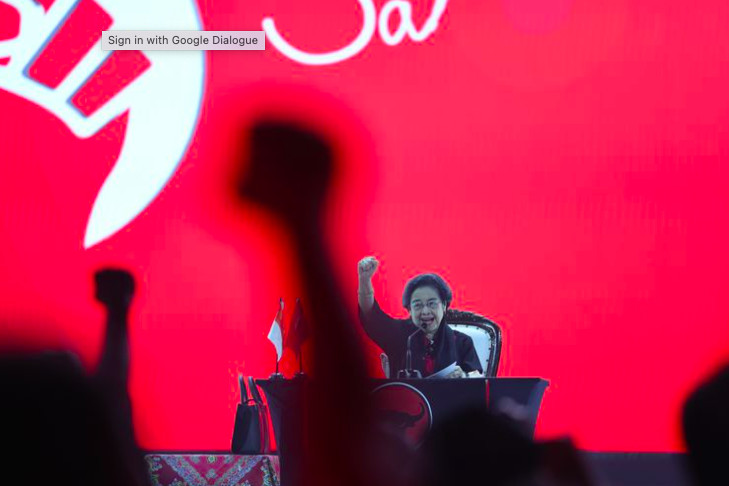Popular Reads
Top Results
Can't find what you're looking for?
View all search resultsPopular Reads
Top Results
Can't find what you're looking for?
View all search resultsWanted: An opposition
In President Joko “Jokowi” Widodo’s first term, from 2014 to 2019, he had the support of a coalition that held just over 60 percent of the seats in the House of Representatives. With this majority, his still faced some stumbling blocks to implementing his campaign pledges, impediments that were all but eliminated when he expanded his ruling coalition in the beginning of his second term, allowing him to advance signature policy aims such as infrastructure development and commodities downstreaming.
Change text size
Gift Premium Articles
to Anyone
D
emocracy cannot function properly without a credible opposition, and the last decade has offered a clear example of what happens when a presidential administration remains largely unchecked by forces outside the ruling group.
In President Joko “Jokowi” Widodo’s first term, from 2014 to 2019, he had the support of a coalition that held just over 60 percent of the seats in the House of Representatives. With this majority, his still faced some stumbling blocks to implementing his campaign pledges, impediments that were all but eliminated when he expanded his ruling coalition in the beginning of his second term, allowing him to advance signature policy aims such as infrastructure development and commodities downstreaming.
With an unassailable 80 percent of the House – the largest political coalition the country has ever seen – there was the temptation to overreach.
And overreach the coalition did.
In the past five years, numerous policies, plans and proposals have been rammed through the House with scant consultation or public scrutiny.
For a number of key pieces of legislation, from the Job Creation Law to revisions to the nation’s electoral and corruption laws, the legislature supplied little more than a rubber stamp for proposals drawn up by the executive branch.
And in instances where a proposal was likely to trigger serious debate, the executive branch bypassed the House altogether and went straight to an agreeable, even fraternal judiciary.
When the ruling coalition acceded to the proposal to nominate President Jokowi's son, Gibran Rakabuming Raka, to run for vice president alongside now president-elect Prabowo Subianto, administration insiders engineered a plan to file a judicial review with the Constitutional Court to circumvent the age minimum for candidates.
And when the court finally approved the proposal, there was no one to mount a significant opposition to the verdict.
The Indonesian Democratic Party of Struggle (PDI-P) should know the risk that comes with a political system without a credible opposition, having come of age in the late 1990s while mounting a staunch opposition to the authoritarian regime of New Order leader Soeharto.
It was this courage that voters rewarded in the inaugural free general election in 1999, granting the PDI-P more than 30 percent of the popular vote.
Recently, even when the PDI-P was still a member of the ruling coalition, it fashioned itself as a vocal critic of President Jokowi's antidemocratic tendencies.
Now, with almost all political parties jockeying for position in the incoming Prabowo administration, it falls to the PDI-P to fly the opposition flag once more.
PDI-P chair Megawati Soekarnoputri has never articulated a formal party position on Prabowo's presidency, but she drew a clear line in the sand this weekend in her opening speech at the party's national meeting.
"As a political party with a long history of fighting for democracy, we put primacy on checks and balances, that a democracy needs a control and counterweight," Megawati said in a fiery speech met with hollers of support from the audience, especially when the senior politician asked if Jokowi was responsible for the weakening of the Constitutional Court.
As the largest party in the legislature, the PDI-P could serve, if it rises to the call, as a substantial counterweight to the incoming Prabowo administration, a dynamic that would bode well for the country's democracy.
The job of governing is too important for it to be left to the executive branch alone, even if it has the best intentions.











